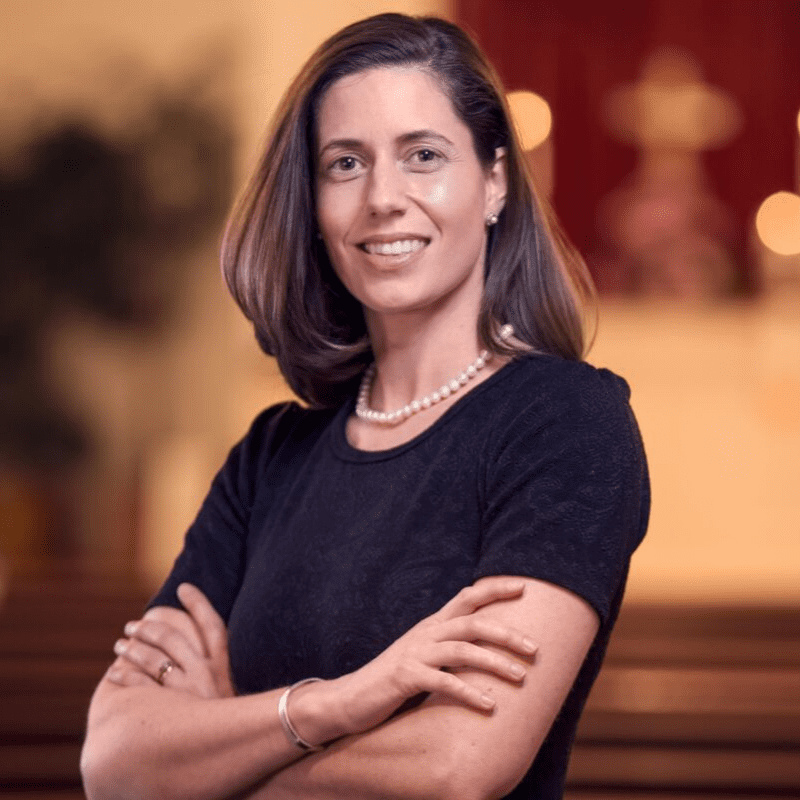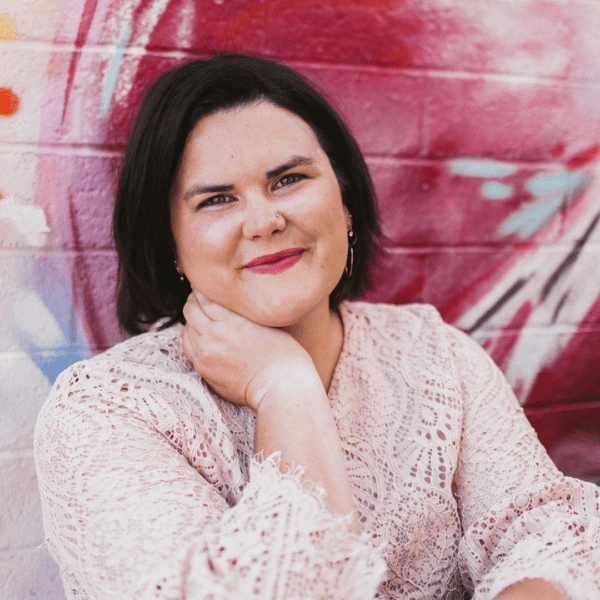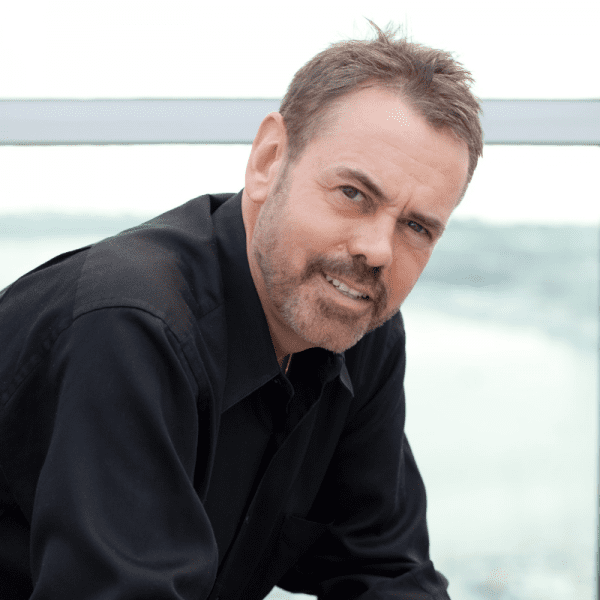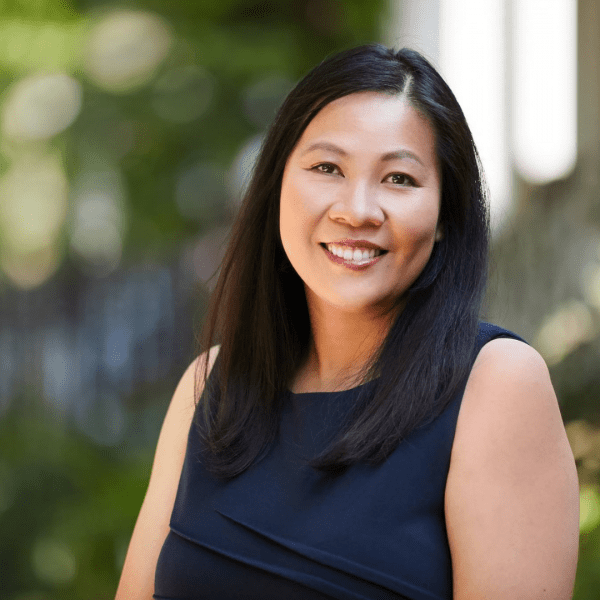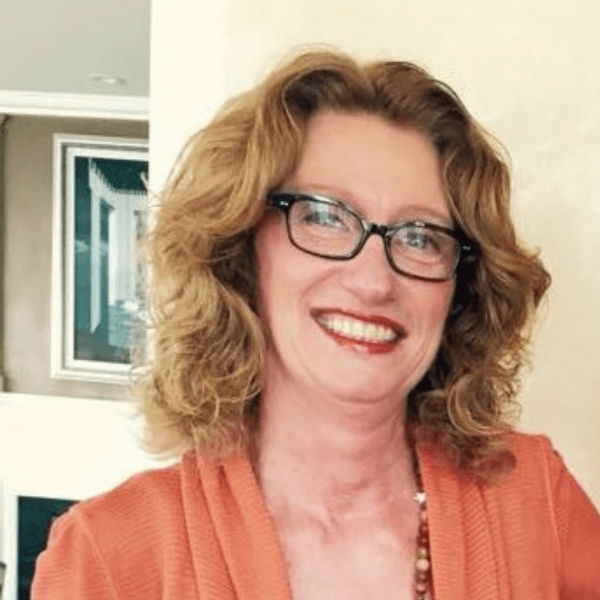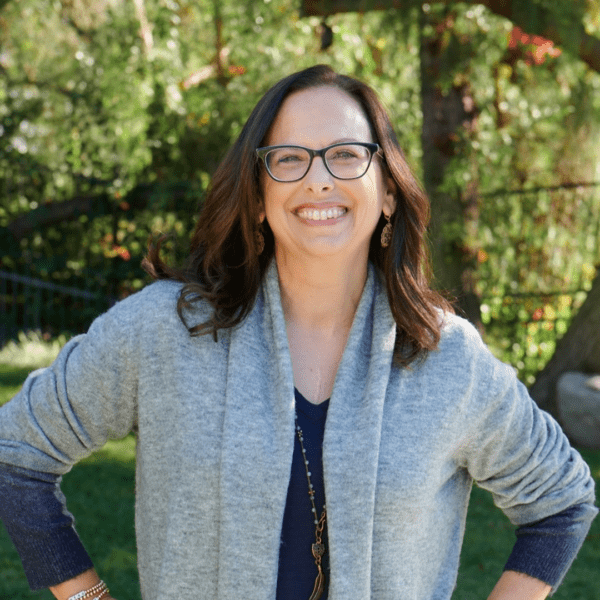Meet Mandy North, an ordained minister and lead pastor of the Manassas Church of the Brethren in Virginia. She firmly believes all people are called to love and be loved and we couldn't agree more.
For Mandy, compassion – for all people – is the single most important part of the human experience. It’s through this compassion, in combination with a strong sense of solidarity and the commitment to action, that we find hope in making the world a better place.
Learning From Refugees
Mandy’s life-changing experience began in Africa. She traveled there with New Community Project, an organization that offers Learning Tours to promote education about certain issues and projects happening all over the world. During her time in Africa, she met refugees from South Sudan who are currently living in northern Uganda. The New Community Project supports these women refugees through providing skills training and microloans to encourage the growth of small businesses. Mandy was most impacted, however, by her conversation with a man named John.
John was nine-years-old when violence broke out in South Sudan. Although he was a young child, John felt there was no choice but to flee to Kenya. Let that sink in. A nine-year-old boy knew his home was no longer safe. Therefore, choosing to flee and live in a refugee resettlement camp. John lived in this camp for seven years. Sadly, this is reality for so many people throughout the world.
Clearly, this conversation impacted Mandy on a deeply personal level.
In Solidarity
Inspired by the resilience and bravery of the people she met in Africa, once she got home, Mandy decided to participate in a ration challenge. The challenge was held in honor of World Refugee Day by, Church World Service and it challenged Americans to eat like a refugee for one week. That's only seven days. Mandy felt sure that if John could live like this for seven years, she could survive seven days.
You're living off what?
Once Mandy was registered for the challenge, the organization provided the following items:
- Four pounds of rice
- Three cups of flour
- Six ounces of dried lentils
- A little bit of vegetable oil
- One can of chickpeas
- One can of kidney beans
- One can of sardines

For the most part, participants ate for roughly $1 per day. For Mandy, a typical day looked like rice for breakfast, lentils for lunch, and lentils for dinner. This is the experience so many refugees face, all over the world and for much longer than one week.
This experience was, without a doubt, life-changing for Mandy. It altered her perspective and understanding of the refuge plight while making her even more grateful for all that she and her family have.
Additional Resources Mentioned in Mandy’s Interview
Give a Girl a Chance – New Community Project
If a Tree Falls – New Community Project
Gratitude Journal: Shift Your Focus
MANDY'S REFLECTIONS ON RATIONS
So many lessons learned
While the ration challenge certainly wasn’t easy, Mandy knew she only had to eat this way for 7 days.
It’s wonderful to do everything possible to stand in solidarity with our worldly brothers and sisters, but we can never really understand what life is like for a refugee. While she ate the same food as many refugees, she still had clean water to use for cooking and to drink. A warm bed was always available and she never felt physically unsafe. Additionally, she never had to worry about building a fire in order to cook her food. There was no doubt Mandy would make it through her seven-day challenge and then return to her normal routine.
The groceries that fed Mandy for a week. This is the same amount and kind of food refugees are eating every day – with no end in sight!
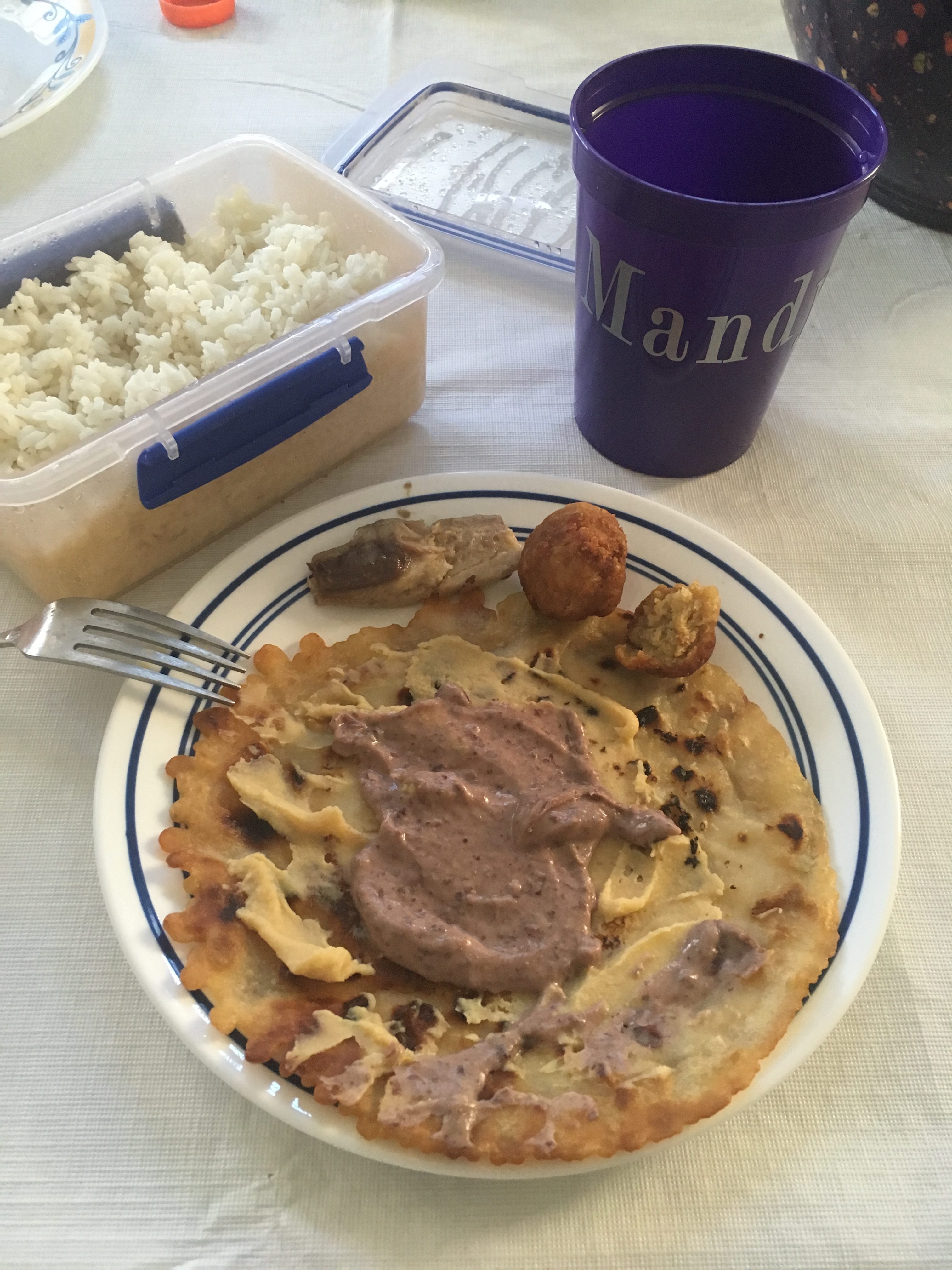
Mandy used her time during the ration challenge to reflect on how we can stand in solidarity with other people. While we may not understand their struggle personally, we can always show empathy. Unquestionably, it takes bravery to stand up for others. When we take the time to think about other people’s experiences, we better ourselves and the world around us.
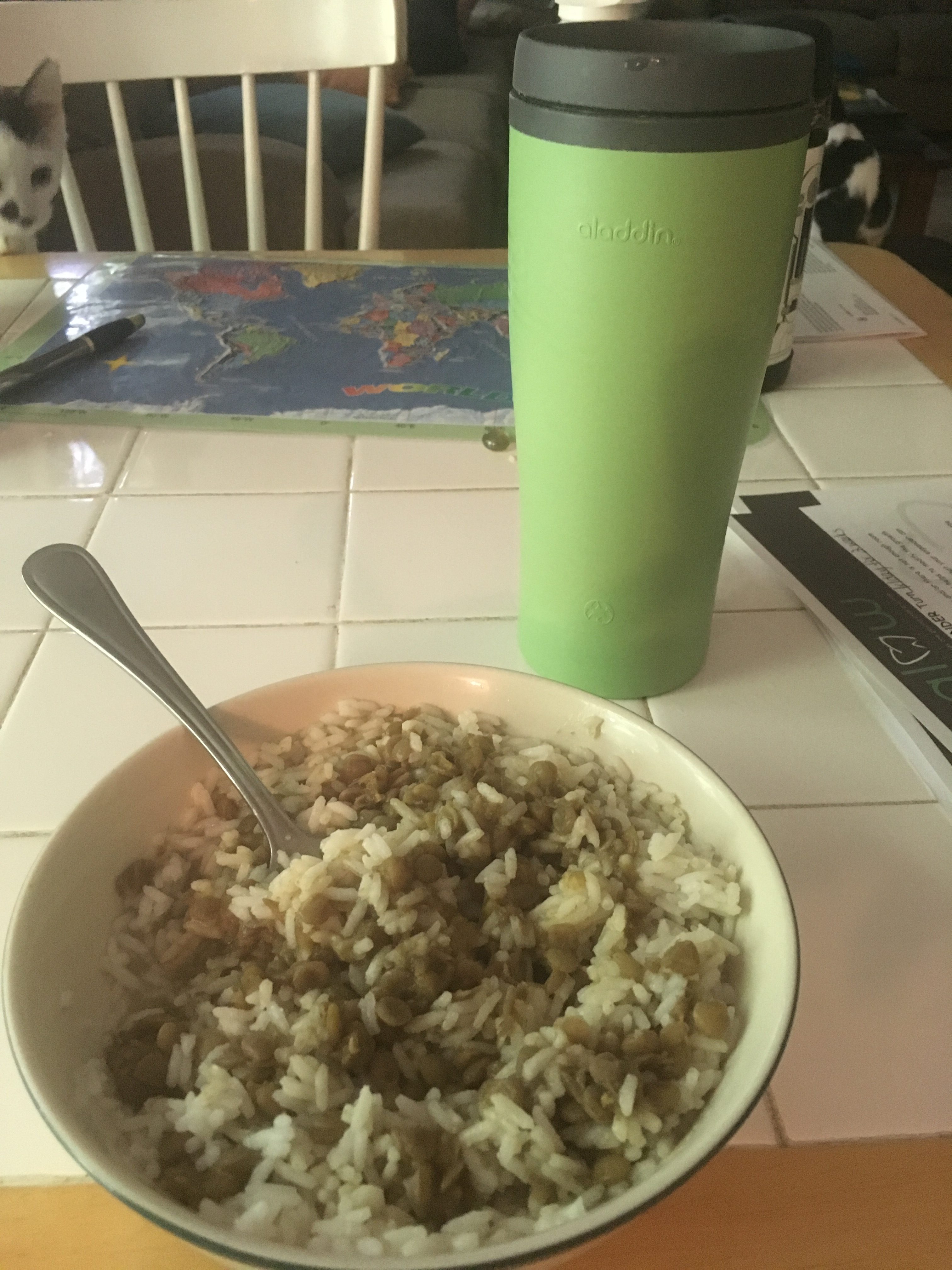
THIS WORLD IS A BIG PLACE. LET’S STAND IN SOLIDARITY WITH OUR WORLDLY NEIGHBORS. LET’S CHANGE THE WORLD THROUGH COMPASSION.
A FOLLOWUP NOTE FROM MANDY
After our conversation, Mandy reached out and asked me to share a story she had remembered post-interview. It is below.
It never occurred to me to consider how refugees memorialize their dead when they aren’t at home.
“I totally forgot to tell you the story of a bishop from my trip to Africa. We were supposed to visit a refugee camp while we were in Uganda, but when we arrived we learned that the bishop, who had access to get us into the camp, was grieving the loss of his mother who had just died. So we ended up being able to attend her funeral on one of our first days in Uganda. During the service, I learned that the bishop and his family are all refugees, too, from South Sudan.
He gave thanks for his Ugandan neighbors for sharing their land so they could be safe and for sharing land so they could grow some of their own food and for sharing their land so they could have a place to bury their dead. And he said he was looking forward to the day that they would be able to go home and take his mother home and bury her there. It never occurred to me to consider how refugees memorialize their dead when they aren’t at home.
I give thanks to Uganda for creating a sacred space for their South Sudanese neighbors. I also hope for the day when these refugees can go home again and bury their dead on their homeland.”

Mandy poses for a photo with a group of women from South Sudan staying at a refugee camp in Northern Uganda. They are the Madi Women Group, and their motto is “Unity is Strength.”
PLEASE HELP US CONTINUE TO GROW AND BUILD A COMMIUNITY OF BRAVERY BY BECOMING A SUPPORTER ON PATREON.









